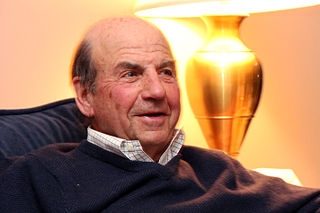A Quote by H. R. McMaster
It's important to study and understand your responsibilities within any profession, but it's particularly important for military officers to read, think, discuss, and write about the problem of war and warfare so they can understand not just the changes in the character of warfare but also the continuities.
Related Quotes
One of the reasons it's important for me to write about war is I really think that the concept of war, the specifics of war, the nature of war, the ethical ambiguities of war, are introduced too late to children. I think they can hear them, understand them, know about them, at a much younger age without being scared to death by the stories.
Our senior officers knew the war was going badly. Yet they bowed to groupthink pressure and kept up pretenses. ...Many of my generation, the career captains, majors, and lieutenant colonels seasoned in that war, vowed that when our turn came to call the shots, we would not quietly acquiesce in halfhearted warfare for half-baked reasons that the American people could not understand.
If we look at the Gulf War, the same is also true. Indeed, my work on the logistics of perception and the Gulf War was so accurate that I was even asked to discuss it with high-ranking French military officers. They asked me: 'how is it that you wrote that book in 1984 and now it's happening for real?' My answer was: 'the problem is not mine but yours: you have not been doing your job properly!'
For in this modern world, the instruments of warfare are not solely for waging war. Far more importantly, they are the means for controlling peace. Naval officers must therefore understand not only how to fight a war, but how to use the tremendous power which they operate to sustain a world of liberty and justice, without unleashing the powerful instruments of destruction and chaos that they have at their command.
We don't have any intention whatsoever to use military force to solve the Palestinian problem. But when it comes to terror - when it comes to terror, I believe that military - the right military steps is a very, very complicated kind of warfare, where I make every effort not to escalate the situation.
I've just always had a personal fascination with the myth of Abraham Lincoln. And once you start to read about him and the Civil War and everything leading up to the Civil War, you start to understand that the myth is created when we think we understand a character and we reduce him to a kind of cultural national stereotype.


































